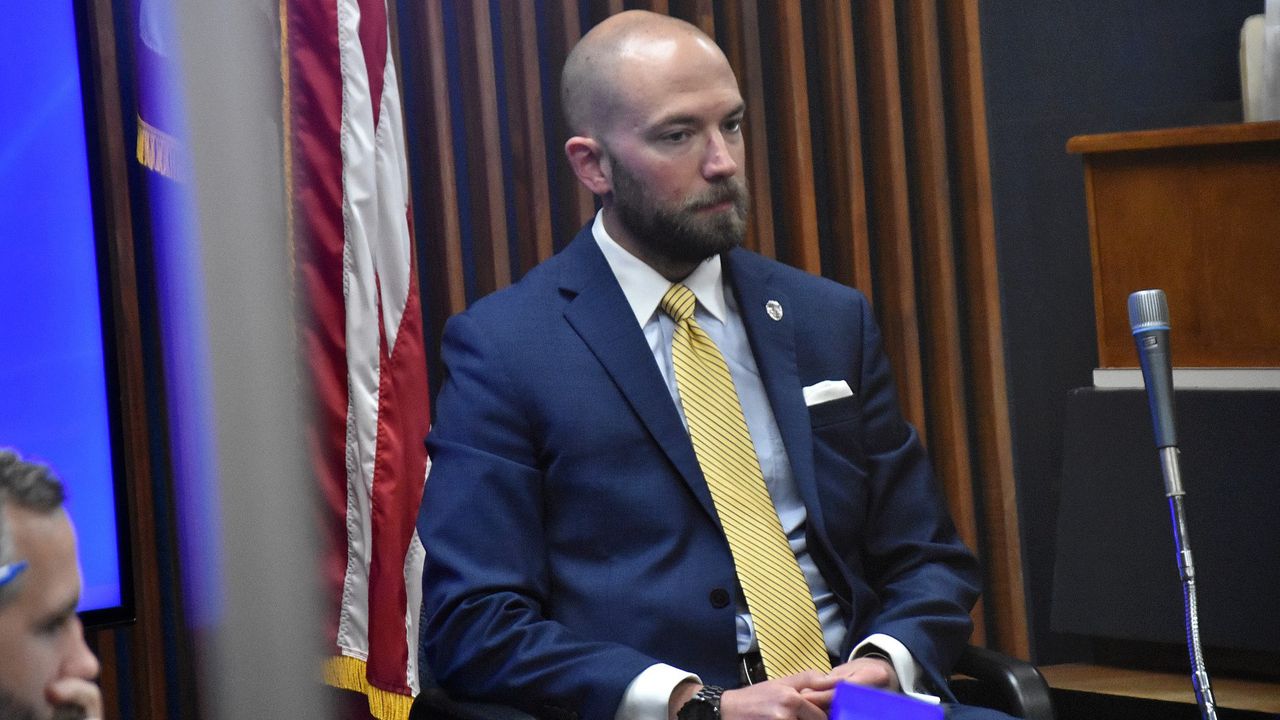Huntsville fails to get out of police shooting lawsuit
Huntsville taxpayers could still wind up paying for a deadly police shooting that happened three years ago.
The city does not have an insurance policy to pay damages if a jury or judge decides a federal lawsuit in favor of the family of Jeff Parker, the man shot and killed by Huntsville police officer William Ben Darby in 2018. And a federal judge last week issued an order keeping the city in the lawsuit.
“If they’re ultimately held responsible, the city would be responsible for paying,” said Martin Weinberg, one of the lawyers representing Parker’s family in the federal lawsuit. “That would come out of public money.”
U.S. District Judge Liles C. Burke on Friday rejected the city’s motion to dismiss and ruled that the lawsuit “plausibly establishes that the City had a policy that caused Officer Darby’s unconstitutional conduct.”
Kelly Schrimsher, the city’s director of communication, confirmed that Huntsville is “self-insured” but declined to answer further questions
“As is its usual practice, the City does not comment on pending litigation,” Schrimsher said in an email to AL.com. “Instead, the City will respond appropriately within the confines of the court system.”
[Read more: Huntsville won’t reveal how much it spent on lawyers in Darby case, claims records are ‘privileged’]
A state court judge last summer sentenced Darby to 25 years in prison after a Madison County jury found him guilty of murder for shooting Parker in the face.
The lawsuit alleges the city effectively condoned excessive force in defending Darby, paying his criminal legal bills with public money and publicly disputing the jury’s guilty verdict of murder.
The federal lawsuit is still a long way from reaching a jury. And the city will get more chances to have claims thrown out.
“The family is very happy that the city is remaining in the lawsuit, but there’s a long way to go,” Weinberg told AL.com. “It’s good news from our perspective. Our theory makes sense to the judge.”
In his ruling on Friday, Judge Burke wrote that the lawsuit’s “allegations — at a minimum — plausibly establish that the City’s ‘use of force’ policy directed or authorized Officer Darby to employ unconstitutional force against Parker.”
The judge noted that he did not determine that the family’s allegations in the lawsuit are true. “However, at this procedural posture, the Court must credit (the) allegations and view them in the light most favorable to (the family),” he wrote.
On the afternoon of April 3, 2018, Parker called 911 and said that he was armed and suicidal. Police went to Parker’s home in west Huntsville and found him sitting on a couch with a gun to his head. The first officer to arrive testified against Darby at the murder trial, telling the jury that she tried to de-escalate and keep Parker from taking his own life.
Darby, the third officer on the scene, testified that he had to take over the situation from the senior officer because he believed she was putting herself in danger by talking to Parker. He told the jury that he shot Parker in defense of himself and two other officers because he feared the man might shoot them with what later turned out to be a flare gun.
Body camera video shows Darby grab a shotgun from his patrol car, sprint to the house and shout for Parker to drop his gun. Darby fired the fatal shot 11 seconds after entering the house, the video shows.
About a month after the shooting, the Huntsville police department’s internal review board — a panel of three captains — decided that Darby did not violate city policy when he shot and killed Parker. In fact, Darby returned to work, and the city sent the other two officers for remedial training.
Darby remained on the force until he resigned more than two months after the jury found him guilty of murder.
At a hearing last month on the motion to dismiss, Richard Riley, one of the Parker family attorneys, told Judge Burke that the city’s actions in Darby’s case tell other officers, “If you do what we tell you to do, we’re going to protect you — even if it’s unconstitutional.”
[Read more: Retired Huntsville chief stands by officer convicted of murder: ‘How could I fire him when he didn’t violate policy?’]
